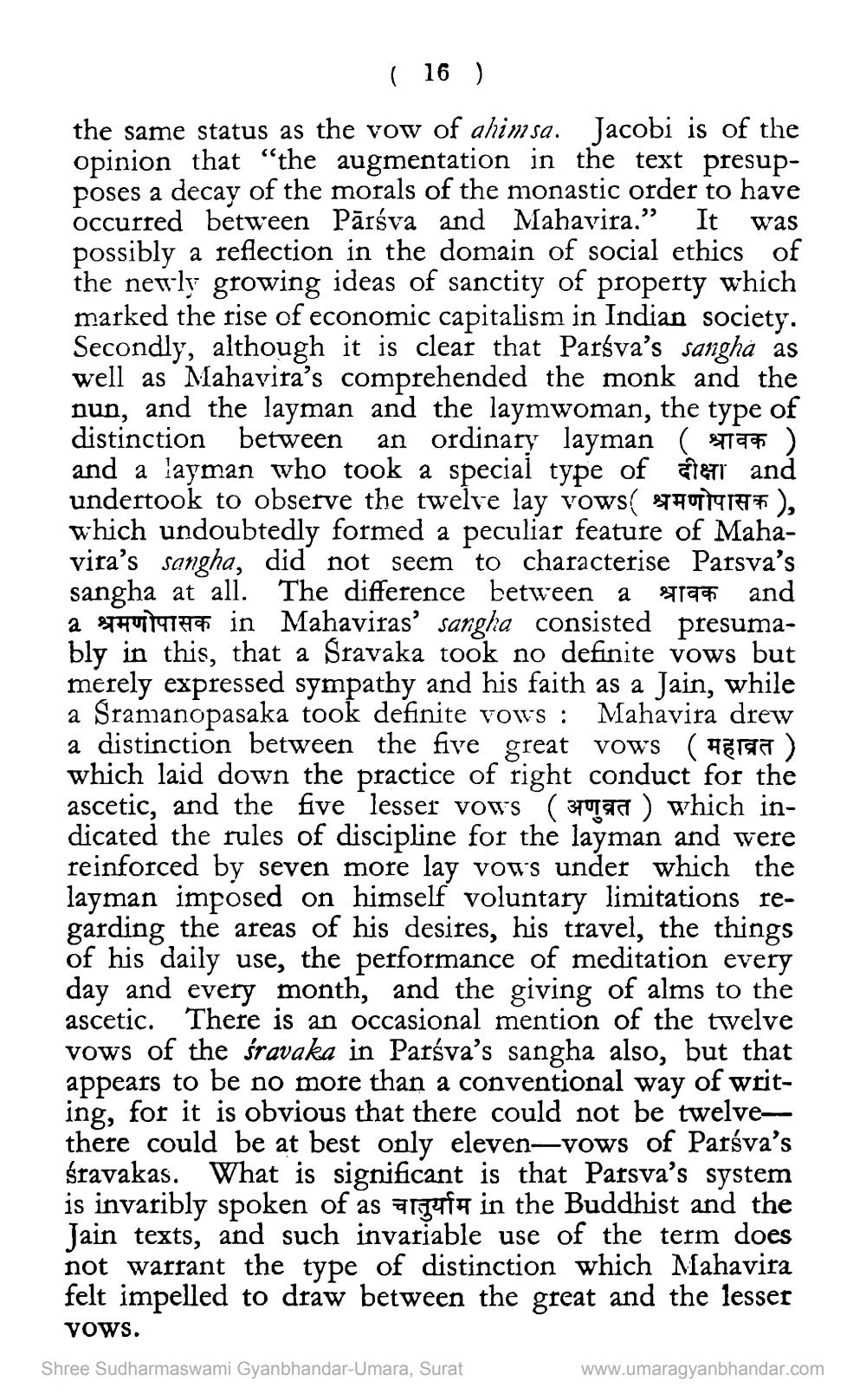________________
( 16 ) the same status as the vow of ahimsa. Jacobi is of the opinion that “the augmentation in the text presupposes a decay of the morals of the monastic order to have occurred between Pārsva and Mahavira.” It was possibly a reflection in the domain of social ethics of the newly growing ideas of sanctity of property which marked the rise of economic capitalism in Indian society. Secondly, although it is clear that Parśva's sangha as well as Mahavira's comprehended the monk and the nun, and the layman and the laymwoman, the type of distinction between an ordinary layman ( 797 ) and a layman who took a special type of per and undertook to observe the twelve lay vows{ STRUTTT), which undoubtedly formed a peculiar feature of Mahavira's sangha, did not seem to characterise Parsva's sangha at all. The difference between a 9779104 and a 474419147 in Mahaviras' sangha consisted presumably in this, that a Sravaka took no definite vows but merely expressed sympathy and his faith as a Jain, while a Srananopasaka took definite vows : Mahavira drew a distinction between the five great vows (HETET) which laid down the practice of right conduct for the ascetic, and the five lesser vows (3709which indicated the rules of discipline for the layman and were reinforced by seven more lay von's under which the layman imposed on himself voluntary limitations regarding the areas of his desires, his travel, the things of his daily use, the performance of meditation every day and every month, and the giving of alms to the ascetic. There is an occasional mention of the twelve vows of the śravaka in Parśva's sangha also, but that appears to be no more than a conventional way of writing, for it is obvious that there could not be twelvethere could be at best only eleven-vows of Parśva's śravakas. What is significant is that Parsva's system is invaribly spoken of as aguth in the Buddhist and the Jain texts, and such invariable use of the term does not warrant the type of distinction which Mahavira felt impelled to draw between the great and the lesser
vows. Shree Sudharmaswami Gyanbhandar-Umara, Surat
www.umaragyanbhandar.com




